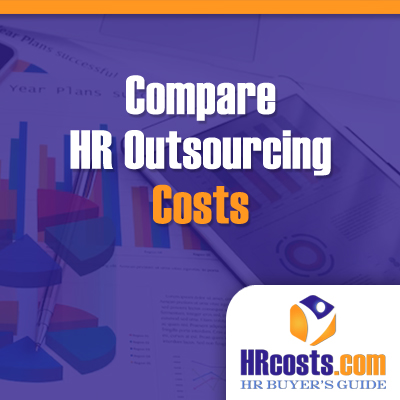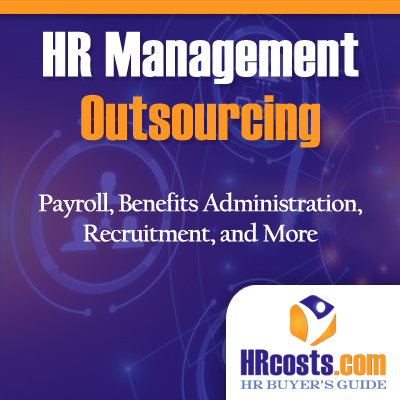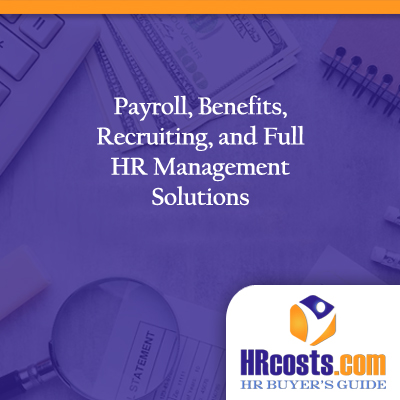
HR Outsourcing vs In House HR: Comparing the Costs
In the rapidly evolving business landscape, HR management stands at a crossroads between traditional in-house operations and the dynamic, flexible world of HR outsourcing. As companies strive for efficiency, scalability, and strategic focus, the question of how best to manage HR functions becomes crucial. This blog delves into a comprehensive comparison between the cost implications of maintaining an in-house HR department and the increasingly popular strategy of HR outsourcing. With a focus on presenting a balanced view that favors HR outsourcing, we aim to highlight how this approach not only offers significant cost savings but also positions businesses for competitive advantage and growth in the modern marketplace. As we navigate through this comparison, it’s essential to consider not just the immediate financial implications but also the long-term strategic benefits that HR outsourcing brings to the table.
Overview of HR Outsourcing and In-House HR Management
The landscape of human resources management has undergone significant transformation, propelled by technological advancements and evolving workforce dynamics. HR outsourcing (HRO) has emerged as a strategic solution, allowing businesses to delegate key HR functions—such as payroll processing, benefits administration, employee training, and legal compliance—to external experts. This approach contrasts with the traditional in-house HR model, where a dedicated department within the company manages all HR-related activities.
The in-house model requires significant investment in HR talent, technology, and processes to effectively meet the organization’s needs. As businesses grow and HR demands become more complex, the limitations of this model become apparent. HRO offers a compelling alternative, providing scalability, access to advanced HR technology and expertise, and the flexibility to adapt to changing business needs without the overhead associated with expanding an in-house HR department.

Cost Analysis: HR Outsourcing vs. In-House HR
Initial Setup and Operational Costs
Setting up an in-house HR department involves substantial initial costs, including investments in HR software, infrastructure, and the recruitment of skilled HR professionals. In contrast, HR outsourcing firms offer economies of scale, sharing their advanced infrastructure and technology across multiple clients, leading to lower costs for individual businesses.
Salary and Benefits for HR Staff
The average salary for an HR professional varies significantly based on experience, location, and role specificity. When considering the full spectrum of an in-house HR team—including HR managers, specialists, and support staff—the annual costs can escalate quickly. Outsourcing HR functions transforms these fixed labor costs into variable costs, offering businesses the flexibility to pay for services based on their actual usage and needs.
Efficiency and Scalability
HR outsourcing firms specialize in HR management, employing teams of experts who handle a wide range of HR functions more efficiently than most in-house teams. This specialization allows for rapid scaling of services to meet business growth or contraction, without the need for businesses to bear the cost and logistical challenges of resizing their in-house HR departments.

Strategic Benefits of HR Outsourcing
Access to Expertise and Technology
One of the most compelling advantages of HR outsourcing is the immediate access it provides to high-level HR expertise and the latest HR technologies. Outsourcing firms invest heavily in training their staff and updating their software to stay at the forefront of HR practices, offering small to medium-sized businesses the kind of resources typically available only to large corporations.
Risk Management and Compliance
Keeping abreast of the constantly changing landscape of employment laws and regulations is a daunting task. HR outsourcing firms specialize in legal compliance, significantly reducing the risk of costly legal issues and fines that can arise from non-compliance—a benefit that can far outweigh the costs of outsourcing.
Focus on Core Business Functions
By outsourcing HR functions, businesses can reallocate internal resources and focus on core activities that drive revenue and growth. This strategic shift allows leadership to concentrate on innovation and business development, leveraging the expertise of HR professionals to manage the complexities of HR management efficiently.
Addressing Common Concerns About HR Outsourcing
Despite the clear benefits, some businesses hesitate to outsource HR functions due to concerns about losing control over key processes or potential quality issues. However, reputable HR outsourcing firms prioritize transparency and collaboration, working closely with clients to tailor services to their specific needs and maintain high-quality standards. Advanced technology platforms also ensure seamless communication and access to information, addressing concerns about control and visibility.

Embracing the Future of HR Management
The comparative analysis between HR outsourcing and in-house HR management highlights the cost efficiencies, strategic advantages, and operational benefits of embracing HR outsourcing. As businesses navigate the complexities of the modern workforce and seek to position themselves for growth, the case for HR outsourcing becomes increasingly compelling. By partnering with HR outsourcing firms, businesses can not only achieve significant cost savings but also gain access to expertise and technologies that drive HR success.
How Does HR Outsourcing Work?
HR outsourcing operates on a partnership model where a business contracts an external provider to manage its HR functions. This model is highly flexible, allowing for complete outsourcing of the HR department or selective outsourcing of specific functions, depending on the business’s needs. The scope of services can range from payroll processing, benefits administration, and recruitment, to employee training, performance management, and compliance with labor laws.
The Operational Dynamics of Outsourced HR Departments
Outsourced HR departments function as an extension of the client company. Upon entering a partnership, the outsourcing firm conducts a thorough assessment of the company’s HR needs, objectives, and existing processes. This initial phase ensures that the outsourcing strategy is tailored to the company’s specific requirements and integrated seamlessly with its operations.
Service Delivery Models
HR outsourcing firms typically offer a range of service delivery models, including:
- Professional Employer Organization (PEO): In this co-employment model, the PEO becomes the employer of record for tax purposes and assumes many of the legal responsibilities of employing staff. This arrangement allows businesses to offer a broader array of benefits and offload significant HR and compliance burdens.
- Administrative Services Organization (ASO): An ASO provides HR services without becoming the employer of record, offering flexibility for companies looking to maintain more control over their employees.
- HR Software as a Service (SaaS): For businesses that prefer to handle HR tasks in-house but lack the necessary technology, partnering with an HR SaaS provider offers access to state-of-the-art HR software platforms.

What Outsourced HR Departments Do
The functions of outsourced HR departments encompass a wide range of services designed to manage and optimize the employee lifecycle and enhance organizational efficiency, including:
- Recruitment and Onboarding: Streamlining the hiring process, from crafting job descriptions to conducting background checks and facilitating a smooth onboarding experience for new hires.
- Payroll and Benefits Administration: Managing payroll processing, tax filings, and benefits administration, ensuring compliance and accuracy.
- Training and Development: Offering employee training programs focused on skill development, compliance, and leadership.
- Performance Management: Implementing systems to assess and improve employee performance, aligning individual goals with organizational objectives.
- Legal Compliance: Ensuring that employment practices adhere to local, state, and federal regulations, mitigating legal risks.
Impact on Employees
The adoption of HR outsourcing has a direct and positive impact on employees, characterized by:
- Enhanced Benefits: Access to a broader range of benefits and wellness programs, typically available only in larger organizations, contributing to higher job satisfaction and employee retention.
- Professional Development: Opportunities for professional growth through comprehensive training and development programs, fostering a culture of continuous learning.
- Efficient Resolution of HR Issues: Quick and professional handling of HR-related concerns and queries, enhancing the overall employee experience.
- Positive Workplace Culture: By relieving the internal team from the burden of HR administrative tasks, companies can focus more on strategic initiatives that foster a positive and engaging workplace culture.
HR outsourcing not only transforms the operational efficiency of HR functions but also significantly enhances the employee experience. Through expert management of HR processes, access to advanced HR technologies, and a focus on strategic HR initiatives, outsourcing firms enable businesses to nurture a more satisfied, engaged, and productive workforce.
HR outsourcing represents not just a cost-saving strategy but a strategic decision that enables businesses to focus on their core strengths, adapt to change, and compete more effectively in the global marketplace. As we look to the future, the choice to outsource HR functions is a clear step toward optimizing resources, enhancing strategic focus, and securing a competitive edge in the ever-evolving business landscape.
